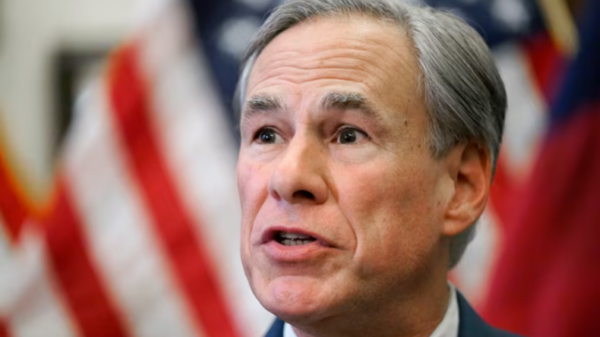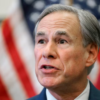By Marin Wolf

As the U.S. nears the milestone of 1 million COVID-related deaths, North Texas doctors and health officials are reeling with shock and disbelief because they never expected this grim outcome when the pandemic began more than two years ago.
President Joe Biden issued a proclamation Thursday directing that U.S. flags be flown at half-staff through sunset on Monday to honor those who lost their lives to the virus. The four largest North Texas counties — Dallas, Tarrant, Collin and Denton — alone account for nearly 15,000 of those deaths.
Since March 2020, North Texas has experienced five coronavirus waves, each one overwhelming local hospitals and forcing people to say goodbye to their loved ones over video calls.
Dr. Joseph Chang, Parkland’s chief medical officer, has watched several terrifying diseases pass through the area in his tenure, including swine flu, HIV and ebola. None, he said, compare to the terror caused by COVID-19.
“The word that really sticks with us is ‘relentless.’ It has just never ended. Over and over,” he said. “And with every big wave passed we just hoped that was the last one, but here we go again, we have another one.”
Since the omicron wave this winter, coronavirus case counts have settled and the burdens on hospitals have eased. While fear of another surge later this year is always present, so, too, is the grief caused by the profound loss experienced by families across the country.
In 2020, researchers came up with an indicator to measure the impact of that grief, called the COVID-19 bereavement multiplier. For every COVID-19 death in the U.S., nine surviving Americans will lose a grandparent, parent, sibling, spouse or child, according to the analysis.
By that measure, nearly 800,000 Texans have lost a close relative to the virus. It will likely take years before Texas sees the full extent of grief of this magnitude.
“It is important to recognize that our neighbors, members of our community may have been touched by one of these deaths,” said Janice Walker, chief nursing executive at Baylor Scott & White Health. “People are still going through the natural stages of grieving. Entire communities are grieving, and we know with grief comes enormous stress.”
Intense grief often emerges in the mundane, quiet moments. For Jennifer Garcia in Fort Worth, who lost her father to COVID-19 in October 2020, walking into certain restaurants where she and her father used to eat has become a nearly impossible task.
“There’s days that we just break,” Garcia told The Dallas Morning News earlier this spring. “There are certain restaurants I refuse to go to, certain songs I won’t listen to because they’re still too hard.”
For health care workers, that grief often appears on the job. Nurses and doctors have stepped in as family members for patients dying of the virus, holding their hands in their last moments of life.
That grief is exacerbated by the fact that many of the front-line workers confronting COVID-19 every day have lost their own loved ones during the pandemic.
“In every patient that we see, we see a loved one that has died. When we see an elderly man pass away, we see our own dad, our grandfather. When we see a young lady mourning her mom at her bedside, we think of our own parents,” Chang said. “That sense of loss, I think, will really never go away.”
Health care workers and public health experts learned to constantly have their guard up, waiting for the next variant to sweep through the area. The latest variant to pick up speed, omicron sub-variant BA.2.12.1, appears to cause less severe illness than its predecessors, even though it is more contagious.
There’s hope that the trend of less severe consequences from new variants will continue, but Dr. Alejandro Arroliga, chief medical officer at Baylor Scott & White Health, is cautious to say whether it will stay that way as the virus mutates.
“This immunological escape that the virus can have may be catastrophic because the previous infection and the previous vaccines won’t help. We would be starting over,” he said. “And so, we are watching very closely. As the saying goes: Hope for the best, prepare for the worst.”









You must be logged in to post a comment Login